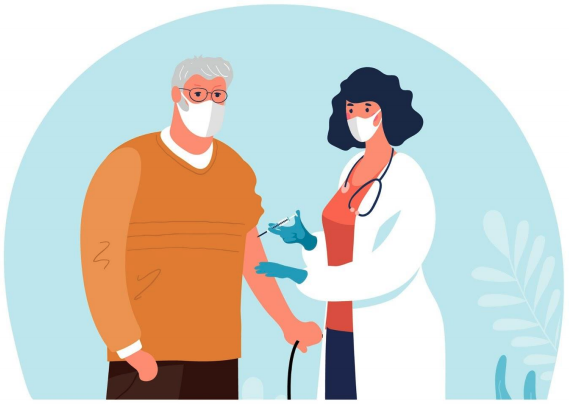Key takeaways
- Americans now rate the coronavirus pandemic as the top issue Biden and Congress should be focused on.
- Majorities of Americans support mask mandates and vaccine requirements.
- Arguing that the country has always had vaccine requirements – including for polio and smallpox – is effective in justifying a vaccine mandate against conservative criticism.
As Coronavirus Case Numbers Rise Again, the Pandemic Returns to Top Priority Over Jobs and the Economy
In mid-July, 41% said Biden and Congress needed to focus most on the economy and 33% said the pandemic; now, 43% say the pandemic and 35% the economy. A majority (54%) still feel the pandemic is what Biden is most focused on.
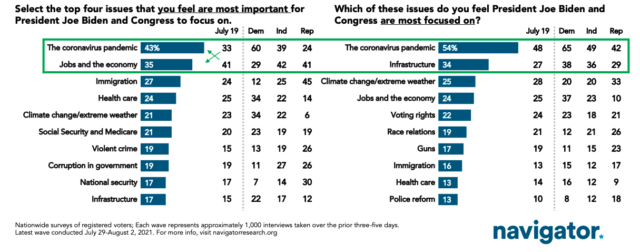
Majorities Support Their Local Community and U.S. More Broadly Re-Introducing Masking Mandates & Social Distancing
Among independents, three in five (60%) support their local community re-introducing mask mandates and social distancing while 67% support communities with increasing levels of infection doing the same.
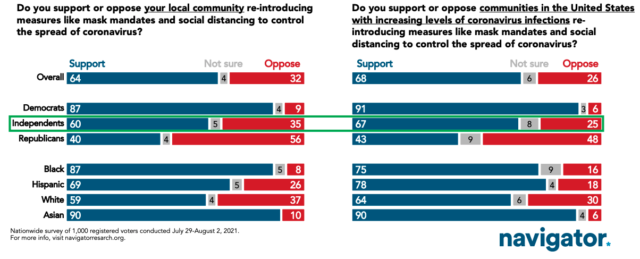
Among Those Vaccinated, Three in Five Say They Will Wear Masks Indoors in Public Places Following New CDC Guidance
Almost three in four (74%) say they will wear masks indoors in at least most public indoor settings.
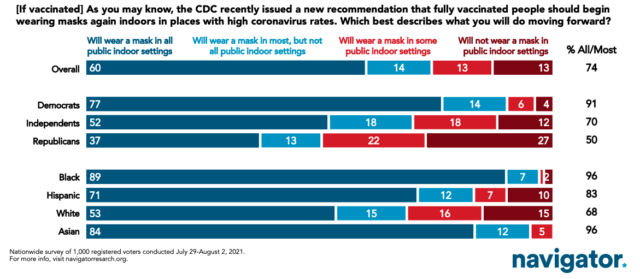
Nearly Three in Five Support Vaccine Mandates
By a 6-point margin, independents support vaccine mandates, as do more than a third of Republicans.
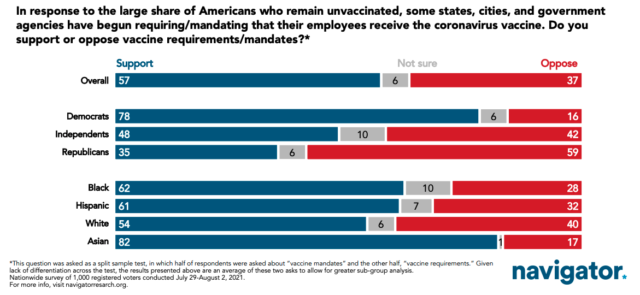
Vaccine Requirements Most Popular in Hospitals and Schools; Mask Mandate in Range of Public Indoor Spaces
At least two in five independents support vaccine requirements in hospitals, schools, the military, planes, and public transit.
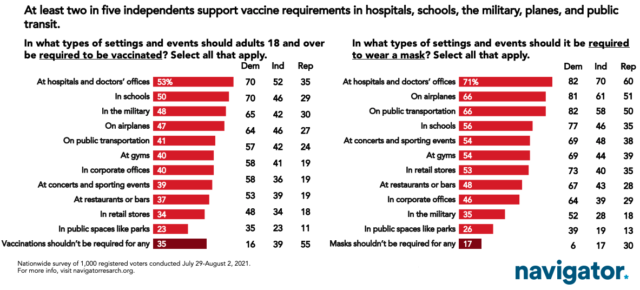
Grounding Coronavirus Vaccine Requirements in America’s History of Requiring Vaccines Is Most Compelling
When pitted against a conservative argument that requiring vaccinations is a violation of personal freedom, language that mentions historical vaccine requirements such as for smallpox and polio is more effective than language about vaccine efficacy, even though both are effective.
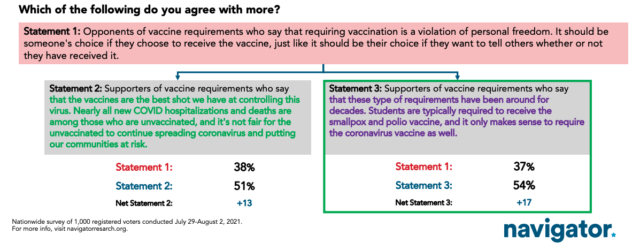
About The Study
This release features findings from a national online survey of 1,000 registered voters conducted July 29-August 2, 2021. Additional interviews were conducted among 110 Hispanic voters, 105 African American voters, 100 independents without a partisan lean, and 79 Asian American and Pacific Islander voters.
